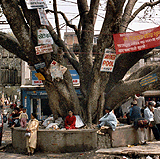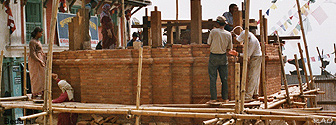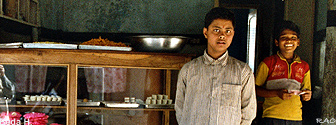 |
 |
5
January 2006 - The United Nations High Commissioner for Human Rights today
called for full respect for international humanitarian and human rights
law in Nepal's armed conflict, following the end of a four-month unilateral
ceasefire by the Communist Party of Nepal (Maoist).
"It
is a tragedy for the people of Nepal that full-scale armed conflict may
now resume. But there need not and must not be the same gross violations
of international humanitarian law and human rights standards that have
been perpetrated during previous phases of the conflict", High Commissioner
Louise Arbour said. "Nepal is a party to the Geneva Conventions as well
as to most international human rights treaties: its security forces are
aware of and must fully respect their legal obligations. The leadership
of the CPN(Maoist) has made general commitments to observe international
humanitarian law and respect human rights: I call on them to declare publicly
their acceptance of all that these principles require, and to explain to
their cadres their responsibility to respect them in practice. Those on
either side of the conflict who commit violations must be held accountable:
not only the perpetrators but also those in command of forces which commit
such acts may be subject to individual criminal responsibility before a
court of law."
International
humanitarian law, applicable in situations of armed conflict, prohibits
murder or violence to persons taking no active part in hostilities. "I
remind the CPN(Maoist) that this includes government officials, the families
of security forces personnel, and persons alleged to be informers," the
High Commissioner said; "and I remind the state security forces that this
includes unarmed persons thought to be Maoists or to have aided the Maoists."
The law prohibits attacks against civilians and acts or threats of violence
intended to spread terror among the civilian population, and it requires
that the parties to the conflict distinguish between civilian objects and
military objectives.
Despite
these clear legal obligations, during the course of the armed conflict
in Nepal, both parties have committed serious violations of international
humanitarian law. Extrajudicial executions, forced disappearances and abductions,
attacks on public transport buses, the indiscriminate release of bombs
from helicopters over targets where civilians were present and were subsequently
killed and injured, the widespread torture of detained persons, the inappropriate
use or disposal of improvised explosive devices leading to the death or
injury of civilians, have all occurred in the context of Nepal's armed
conflict.
International
human rights and humanitarian law provides special protection for children,
including prohibitions on the recruitment and use of children as soldiers
or in other capacities related to the conflict. In contradiction with these
standards, children have been killed and injured, forcibly recruited, used
as informers, and arbitrarily detained and beaten in the context of the
armed conflict in Nepal.
"My
Office in Nepal will be closely monitoring the conduct of both parties
in the period ahead, and I will be reporting accordingly to the Commission
on Human Rights," the High Commissioner said. |




